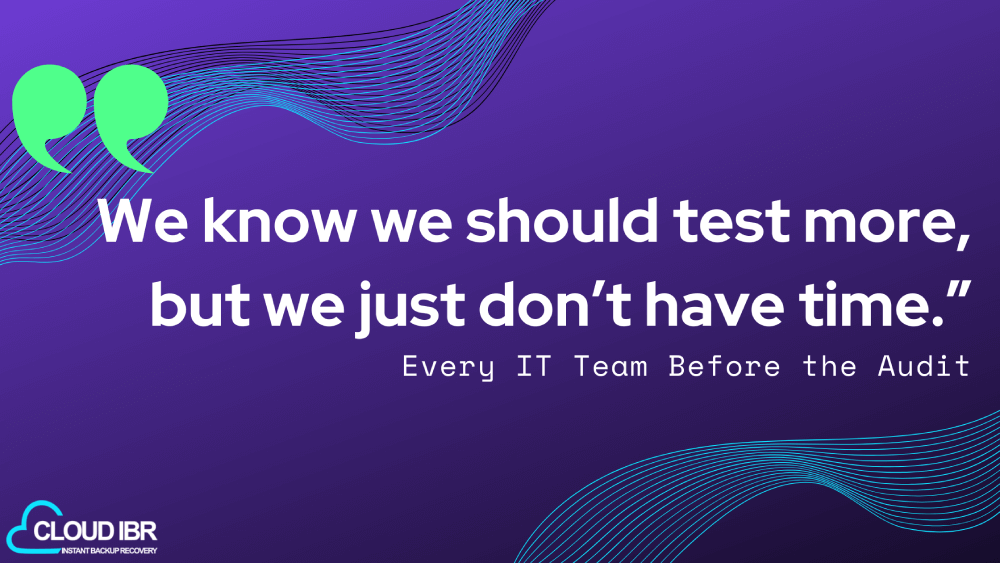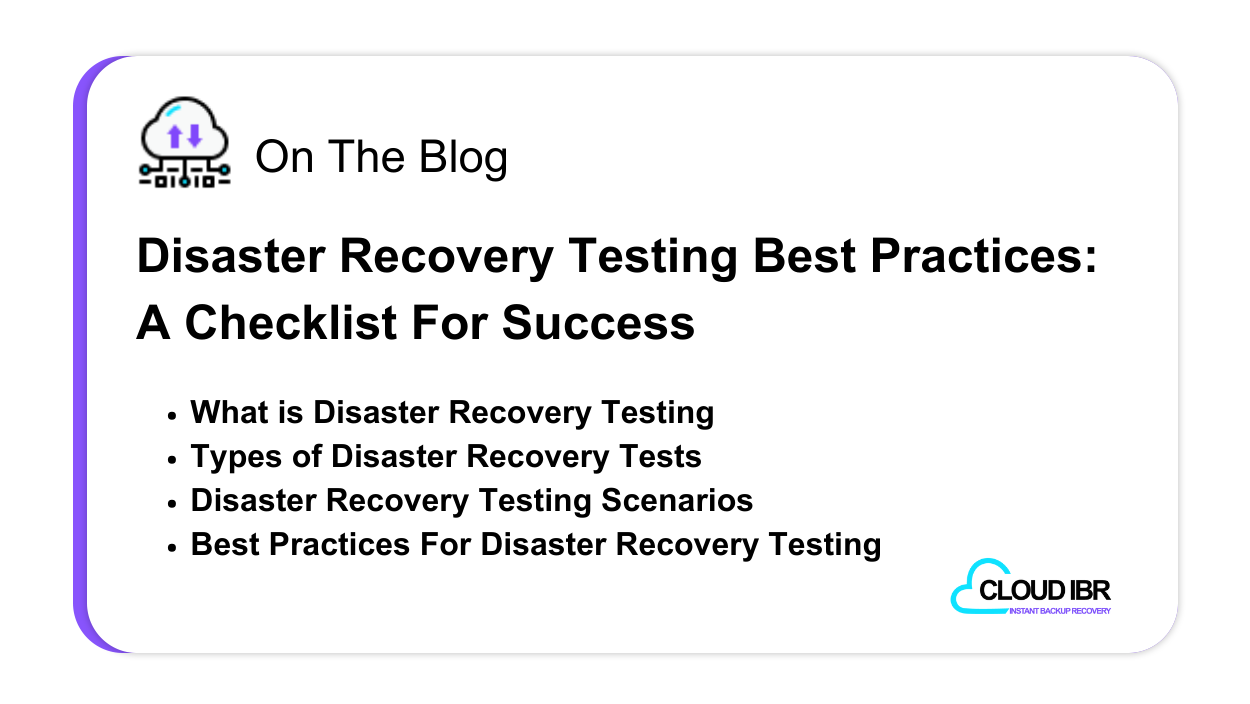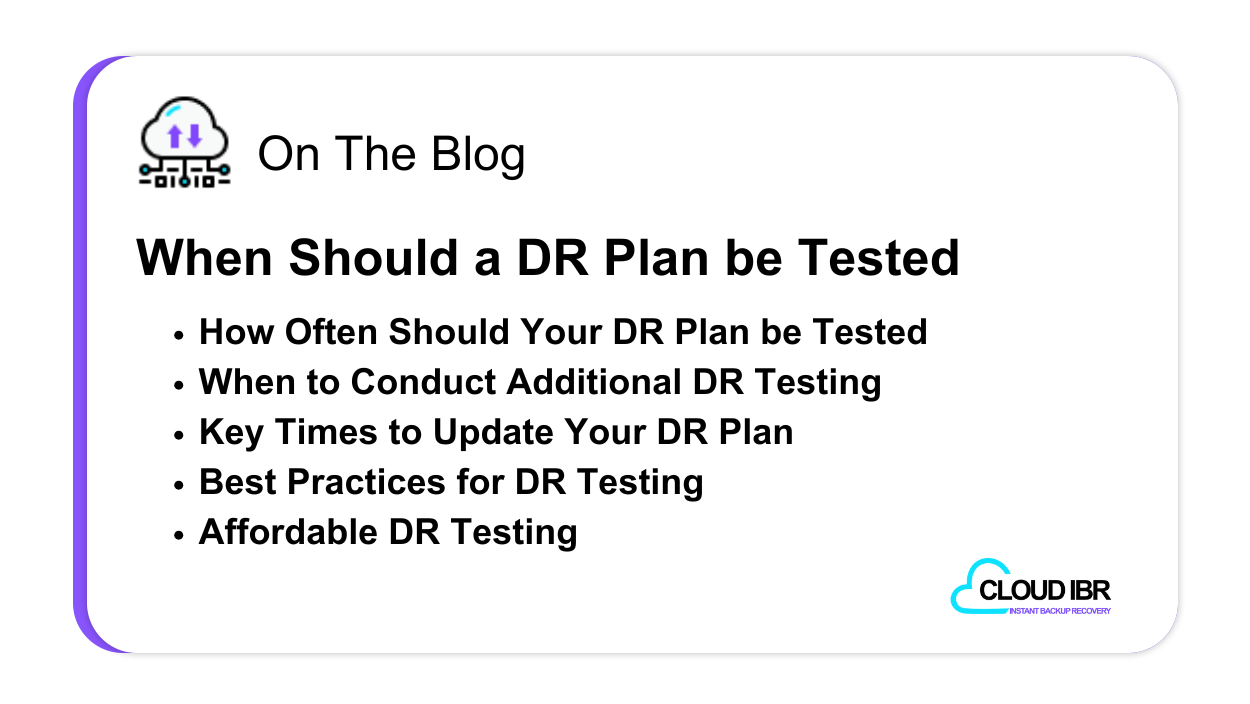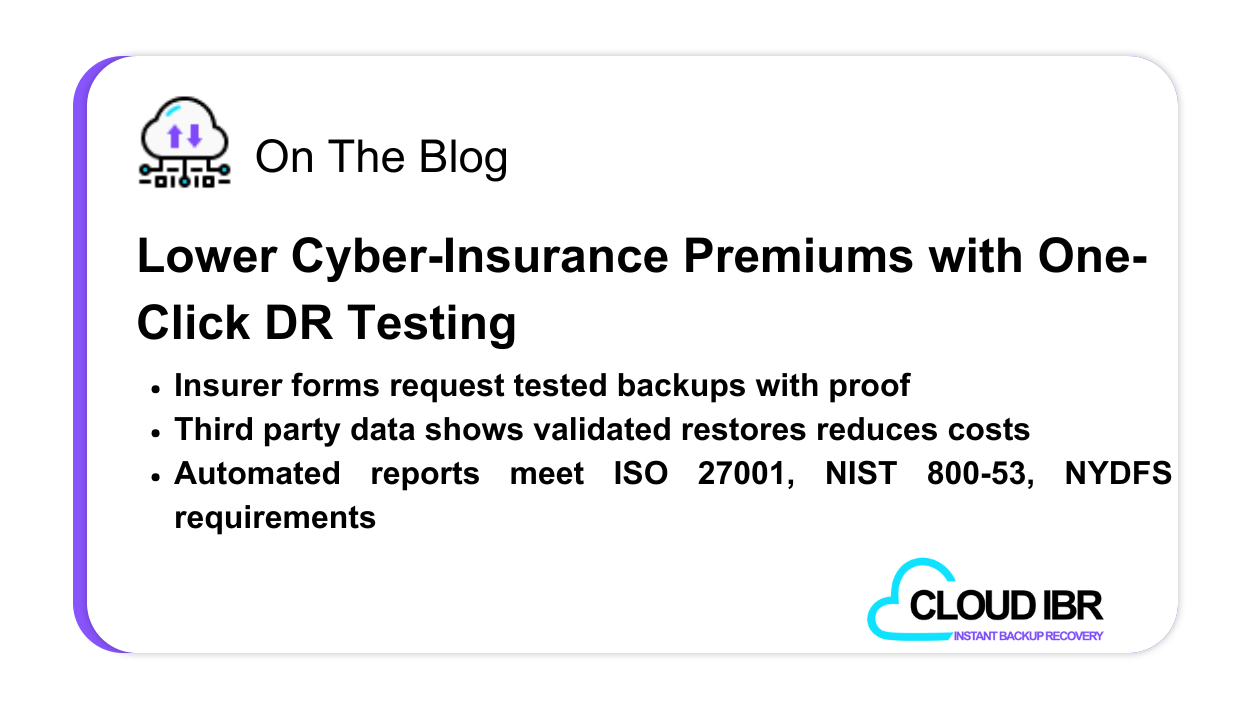
You’ve probably heard this, or said it, more times than you can count. It’s a common excuse in disaster recovery (DR). Not because testing isn’t important, but because traditional DR testing is tedious. It takes time, coordination, and infrastructure that most teams don’t have to spare.
So it gets pushed back. Then pushed back again. Until the next compliance audit or cyber insurance renewal comes around, and suddenly, you’re scrambling to show proof that you can actually restore what you’ve been backing up.
But insurers and regulators aren’t just asking if you have backups anymore. They’re asking:
- Have you tested a full-system restore?
- How fast can you recover from ransomware?
- Can you prove your systems come back clean and complete?
And here’s the reality: if you can’t answer those questions with confidence and documentation, you’ll likely pay more, or worse, get denied coverage entirely.
DR testing isn’t optional anymore. But it doesn’t have to be time-consuming either.
What’s Holding You Back (and Why It’s No Longer a Problem)
Disaster recovery testing has a reputation, and it’s not a good one.
The old way requires a full weekend, a dedicated team, and enough internal coordination to feel like a product launch. You’re spinning up infrastructure, configuring networks, syncing snapshots, and hoping it all works when the moment comes.
For most teams, it’s too much. So testing gets skipped or reduced to a once-a-year checkbox, if that.
But it doesn’t have to be this way.
Cloud IBR replaces manual effort with automation. No pre-provisioned hardware. No late nights. No postmortem cleanup. Just one click in the portal, and the system handles everything, from spinning up the environment to restoring backups and generating signed compliance reports.
Manual DR Testing vs. Cloud IBR Automated Testing
| Manual DR Testing | Cloud IBR Automated Testing | |
|---|---|---|
| Setup | Time-Consuming planning | One-click from web portal |
| Staff Involvement | Team coordination + weekend hours | Scheduled tests, no manual steps |
| Testing Frequency | Rarely gets done | Run weekly, monthly, or quarterly |
| Results & Reporting | Unclear results, missed SLAs | Pass/fail reports, boots logs, RTO data |
Most MSPs Are Leaving Money on the Table
There’s a common misconception among MSPs: that disaster recovery testing is either too complex to offer or too basic to charge for.
In reality, it’s the opposite.
With automated DR testing through Cloud IBR, you can turn what used to be a time sink into a high-margin, low-effort service. No hardware to manage. No custom scripts to build. Just a fully automated, report-generating solution that clients are already asking for, whether they realize it or not.
Here’s how MSPs are packaging Cloud IBR’s DR Testing:
- Offer it as a premium add-on to backup-as-a-service
- Bundle it into compliance or cyber insurance readiness services
- Build recurring revenue from monthly or quarterly test scheduling
- Use pay-per-use billing to eliminate overhead and keep margins healthy
Most importantly, you don’t need to staff up or build anything. You’re selling a fully automated testing layer, complete with pass/fail reports, RTO logs, and compliance evidence your clients can hand straight to insurers and auditors.
See It In Action
Honestly, it’s faster to do than to explain!
-Alessandro Tinivelli of Revobyte
IT Consultant | Veeam Legend
DR Testing Is a Matter of Compliance
Testing isn’t just best practice anymore, it’s required.
Whether you’re pursuing SOC 2, ISO 27001, HIPAA, or trying to secure favorable cyber insurance rates, evidence of tested, restorable backups is now expected.
With Cloud IBR, the answers are easy. Schedule tests automatically. Generate signed reports. Prove recoverability, without lifting a finger.
Ready to Automate Your DR Tests?
Book demo today!
See the impact and ease of automation…
Discover how Cloud IBR generates new revenue, compliments your data protection portfolio, and opens doors to cross-selling opportunities.
Related Posts

Best Practices For Disaster Recovery Testing
Updated: January 7th, 2025 Though data loss, and discontinuation of work due to IT failure, are costly, disaster recovery plans are still largely missing from many business operations. Even those

When Should a Disaster Recovery Plan be Tested
Having a disaster recovery (DR) plan is only the first step in protecting your company from data loss and ensuring business continuity in the presence of an unplanned event. In

Lower Cyber-Insurance Premiums with One-Click DR Testing
Why Insurers Keep Raising the Bar Cyber‑insurance premiums more than doubled in key markets as ransomware surged, and businesses grew more reliant on digital infrastructure during the shift to remote
